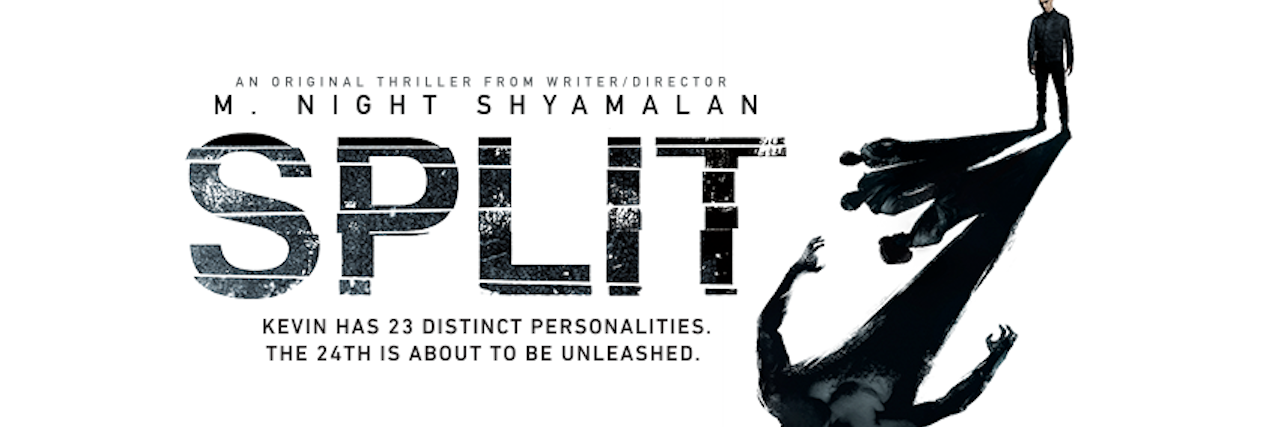6 Things Dissociative Identity Disorder Is (and Why 'Split' Gets It Wrong)
I saw the preview for “Split” blowing up my newsfeed. Friends, colleagues and people who hold esteemed positions in my life raved about how good it was going to be. My curiosity piqued and I clicked to see what it was about. I immediately knew I had made a mistake. I felt like I was sitting in a fishbowl watching some horrible depiction of everyone’s worst fears about psychiatric issues, especially dissociative identity disorder (DID). As someone living with dissociative identity disorder who has attended two DID conferences, I can assure you no one was kidnapping anyone and forcing them to live in some alternate version of reality. I could sit here all day and tell you what DID is not. But instead, let me tell you what DID is.
1. DID stems from trauma.
Typically chronic and horrific child abuse, though there can be other causes as well. Children have great imaginations. My therapist always says, “It takes a truly brilliant child to create an alternate identity to hold the abuse so the original child can continue living and surviving.” If you are being subjected to daily torture as a child, you will do whatever it takes to survive. Children have limited coping skills. Their greatest asset? Imagination. So if 3-year-old “Sally” is being abused daily by her grandpa, but has been threatened if she tells bad things will happen, Sally may push the trauma into a separate part of her mind and call it “Jane.” Now, every time Grandpa comes to hurt Sally, the door to “Jane” is opened. Jane takes the trauma and then once it’s over, Sally comes back and continues to survive, not thinking about or feeling the trauma that just happened.
2. Certain events may trigger someone with DID and cause a personality to pop out.
People with DID survived by being able to blend into any situation and not make a fuss. In general, you will never know someone with DID is switching personalities. I can count on one hand the number of people who know my diagnosis. I work with the public every day. I am involved in the community I live in. Yes, I have dissociated after being triggered. No one noticed, except those who knew what to look for to help me get grounded back to the present. I am not a threat to society. The only person I’m a threat to is myself.
3. Part of being in therapy is learning to set boundaries within yourself, to prevent dissociation in inappropriate places.
Most DID systems have something like a protector or mom figure. In my system, I have a part who mimics me almost perfectly, but does not feel any of the trauma we have endured. She can keep others in their “rooms” and get us to a safe place to deal with whatever is triggering us.
4. People with DID can merge and become one again.
It is a long, lengthy process. It takes years and a wonderful support system but it can and does happen.
5. Everyone dissociates.
Dissociation is the root of DID. Imagine driving a familiar route, say on your way home from work. You leave the parking lot, merge into the highway and then the next thing you know, you’re getting off on your exit with no recollection of the drive? That’s dissociation. Have you ever been in a wreck and remember only bits and pieces? Have you ever read the same page of the book three times because you keep “zoning out?” Dissociation. It does not make you a monster, anymore than it makes me a monster.
6. We work hard at blending in.
I’ve met people with DID who are doctors, lawyers, nurses, teachers, stay-at-home parents, fast food workers, retail workers, therapists. We exist and function as members of society. We work hard at healing. We are successful, productive humans as well.
I believe in having fun. I love a good movie, just like anyone else. Please, if you do watch “Split,” remember it is Hollywood’s version of DID. Can someone with DID murder? Yes. Can someone without DID murder? Yes. But DID is not the thing that makes someone a murderer, kidnapper, rapist or bad person. DID is a survival skill. Just like there are more fatal car crashes than plane crashes each year, it’s that one plane crash that gets the media attention because it’s so rare. The same principle applies here and this is the Hollywood version of a very real problem many people live with every day.
We want to hear your story. Become a Mighty contributor here.
Image from Split Movie Facebook.

